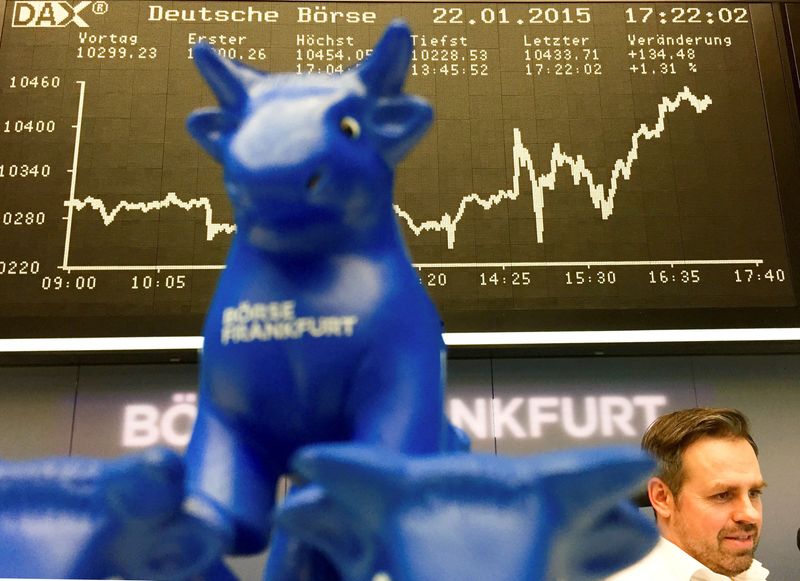Investing.com - European stock markets fell Friday, ending a turbulent week on a negative note as investors digested a deluge of information potentially guiding future global monetary policy.
At 03:10 ET (07:10 GMT), the DAX index in Germany traded 0.2% lower, the CAC 40 in France fell 0.9% and the FTSE 100 in the U.K. dropped 0.1%.
BOJ delays reduction of bond purchases
The Bank of Japan kept interest rates steady as widely expected earlier Friday, and said it will only decide on how to reduce its bond purchases at its next meeting in July.
The BOJ said it will hold meetings with interested parties at unspecified dates to help decide on plans to reduce its bond buying activities.
This came as something of a dovish surprise as the central bank had been widely expected to start cutting its bond purchases at this meeting.
This capped an action-packed week that has seen the Federal Reserve keep interest rates unchanged but cut the number of predicted rate cuts this year to one, from three.
That said, two inflation readings, both consumer prices and producer prices, came in weaker than expected, suggesting inflation was cooling more quickly than the market had priced in.
The European Central Bank cut interest rates by 25 basis points last week, as widely expected, but the region suffered political turmoil at the start of this week as far-right parties made gains in European Parliament elections.
French President Emmanuel Macron responded to losses to the right-wing National Front party, led by Marie Le Pen, by calling for a snap election in France.
French CPI edges higher
Data released earlier Friday showed that French consumer prices rose 2.3% on an annual basis in May, a slight increase from the 2.2% seen the previous month, but only marginally above the ECB’s 2% medium-term target.
The eurozone trade balance for April is due later in the session, along with speeches from ECB officials Phillip Lane and Luis de Guindos.
European automakers in focus
The focus will also be on European automakers in the wake of the European Commission's decision to slap tariffs on imported Chinese electric vehicles.
Crude on course for strong week
Crude prices retreated Friday, but were on course for their best week in more than two months on increased hopes for demand growth this year.
By 03:10 ET, the U.S. crude futures (WTI) traded 0.5% lower at $78.20 per barrel, while the Brent contract dropped 0.4% to $82.45 per barrel.
Both benchmarks were up over 3% this week - the best week since April 5.
The Organization of Petroleum Exporting Countries stuck to a forecast for relatively strong growth in global oil demand for 2024, overshadowing a more bearish report by the International Energy Agency.
Additionally, influential investment bank Goldman Sachs forecast solid U.S. fuel demand this summer.
